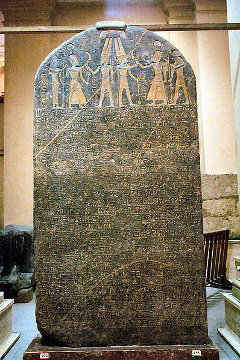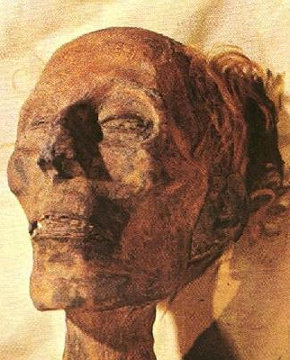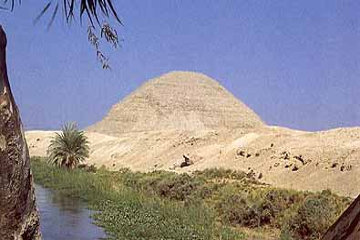Publicity for the Exodus
In one of his books, P. G. Wodehouse makes a snide comment along the lines of "Holywood movie directors hope that if they are good boys and say their prayers regularly, their next film will be banned in Boston" - or it may have been Detroit or Cincinnati. The North Koreans are discovering the truth of the master's aphorism, for after sundry protests and a possible case of hacking that revealed all sorts of skeletons Sony would rather haven kept locked away in their closets, the rather mediocre comedy about the man with the funny haircut has gone on to take a million dollars on its first night and experts predict it will gross $20,000,000 over the Christmas weekend. YouTube reports that the film is top of its list and industry analysts suggest that without the publicity generated by the opposition, it could have expected a mere $5 million on its first weekend.
I imagine, therefore, that producer Ridley Scott must be rubbing his hands with glee over the news that both Egypt and Morocco have banned his new movie, Exodus: Gods and Kings. The film purports to depict the life of Moses - which in itself could be expected to get up Muslim noses, for Moses is revered as a prophet in Islam and good Muslims are averse to seeing their prophets played by a human actor or even merely depicted in pictures. I don't suppose Mr Scott was anticipating vast profits from either Egypt or Morocco, so he can view the banning with equanimity, but the free publicity will no doubt gladen his heart.
Egypt's decision has been taken, not on the grounds of religious sensitivity, but supposedly on the basis of "historical inaccuracies" in the film's depiction of Moses. Exactly what these "historical inaccuracies" are is not specified and I have only seen the trailer for the film, but my sympathies are with the Egyptians: the trailer starts off with a dramatic voice-over proclaiming that two princes grew up as brothers, Moses and Rameses!
The idea that Moses was in some measure contemporary with Rameses is a popular one, which is why it can bear repeating that it is, like most popular myths, entirely wrong.
Back in the Nineteenth Century, when archaeologists routinely expected to dig up confirmation of Bible stories, someone noticed that the Israelites built store cities for pharaoh, Pithom and Rameses. On the not unreasonable assumtion that a new city would be named after its founder, this unknown "expert" concluded that Moses must have lived around the time of Rameses.

| |
| The Merneptah Stele in the Cairo Museum bears the only reference to Israel in ancient Egyptian records |
At this time the chronology of Egypt was still very much in a state of flux as new discoveries enabled the historians to refine, discard and generally tweak the dynasties laid out by the Greco-Egyptian historian, Manetho. It seemed entirely possible that Rameses - one of them, at least - might have lived in the mid-1400s BC, the date fixed by Archbishop Usher for the Exodus.
The trouble was that soon afterwards it became possible to settle the dates for the Nineteenth and Twentieth Dynasties of Egypt and it became clear that whichever Rameses you chose would be two or three hundred years too late. The problem of all these Rameses - there were thirteen of them! - was eased somewhat when Sir Flinders Petrie discovered a stele on the West Bank at Luxor in the temple of Pharaoh Merneptah, down the bottom of which is the throw-away comment that "Israel is laid waste, her seed is not". As Merneptah was the middle king of the Nineteenth Dynasty, the multiple Rameses of the Twentieth Dynasty could be removed from consideration.
Rameses I only ruled for two years, which hardly gave him time to build a city, oppress the Israelites, endure the plagues and perish in the Red Sea. That only left Rameses II and it became firmly settled in the popular mind that this was the pharaoh of the Exodus.

| |
| Salt crystals found on the mummy of Rameses II came from the embalming process, not from the Red Sea! |
A more unlikely choice it would be hard to find. As Wikipedia says, "He is often regarded as the greatest, most celebrated and most powerful pharaoh of the Egyptian Empire." Certainly he was a great builder who was fond of sticking his name to everything he built, but far from being cut off in his prime in the Red Sea, Rameses II lived into his 90s, reigned for 67 years, fathered well over a hundred children, and his mummy was found in the Deir el-Bahri cache. Quite apart from the nearly two centuries of time difference, Egypt under Rameses II reached unparalleled heights of prosperity and its empire extended all the way up to the Euphrates. There was no room for devasating plagues or vast numbers of escaping slaves during this period.
Unfortunately specialists in different fields rarely talk to one another, for if the Egyptologists had discussed the matter with their Palestinian counterparts they would have discovered that there was no sign of an Exodus at this time in Palestine either. Jericho lay in centuries-old ruins, the culture of Palestine continued smoothly uninterrupted, Egyptian governors ruled serenely in places like Gaza, Megiddo and Beth Shemesh. In short, there was no place for the Exodus into Palestine at the time of Rameses II.
The solution to these difficulties was simple: deny that the Biblical story is at all accurate: Ridley Scott and Cecil B. DeMille notwithstanding, there was no parting of the Red Sea, no mass exodus of thousands of slaves, no devastating plagues and therefore no need to explain anything. A few slaves slipped away when no one was looking and generations later their descendants wrote it up as this huge event, but that's myth for you and more fool anyone who takes it seriously.
This link between Moses and Rameses became so fixed in people's minds that it wasn't until the closing years of the last century that anyone thought to think the unthinkable and instead of moving Moses and the Exodus forward to fit in with Rameses, they moved him backwards to fit in with history! Velikovsky, a maverick genius, may have pointed the way, but it wasn't until other scholars like Donovan Courville and David Rohl studied the matter in greater detail that the idea began to be taken seriously.
Curiously, the one "historical inaccuracy" that the Egyptians mention in their press release is probably wrong! They point out, correctly enough, that there were no pyramids being built in Egypt in the time of Rameses and the film, which purportedly shows the Israelites slaving away on something like the Great Pyramid of Gizeh, is wrong.

| |
| The mud-brick pyramid of Hawwara in the Fayyum, which may have been built by Israelite slave labour. |
I'm not sure where Ridley Scott or his screenwriters got the idea of the Israelite slaves building pyramids, but Josephus does claim that his ancestors built pyramids. I would like to think that Scott (or his screenwriters) are learned enough to have used Josephus, but I strongly suspect that they merely thought, "Egypt: pyramids" and stuck them in.
The Egyptian government is correct to state that Rameses never built a pyramid in his life; it is also true to say that if we place the Exodus in the 18th Dynasty, there were no pyramids being built. However if we put the Exodus at the end of Early Bronze, you have the mud-brick pyramids of the Fayyum Oasis - and after all, the Israelites are famous for making mud bricks, with or without straw! To me, that is a strong point in favour of placing the Exodus at the end of Early Bronze.
As might be expected for any radical new idea, there is not complete unanimity on every detail of the new chronology for the Exodus. Here at Digging Up the Past we believe that the Exodus fits best at the end of Early Bronze, but I was recently invited to comment on a new film being made in America which follows David Rohl in championing a position in the middle of Middle Bronze.
I was highly impressed with the professionalism of the film and the persuasiveness of the presentation. Called Patterns of Evidence, I understand that it is due to be released sometime in 2015 and probably earlier rather than later. Unfortunately the makers were only planning to release it in America - the idea that there is a world outside of the USA appeared to be slightly unsettling for them. I have urged them to set up a page on their website so that DVDs of their film can be sold world-wide and I hope that they are taking that advice on board, though so far there is no sign of it.
If so - and I hope we will be among the first to announced the URL of that website - I do hope that you will buy the DVD. Of course, don't let me stop you going to see Mr Scott's amusing piece of light fiction, but for good, solid scholarship, excellently presented, I commend you to Patterns of Evidence (Click this link to see a trailer for the film).
If you would like to see the film available on DVD, please write to info@thinkingmanfilms.com and demand that the film is made available world-wide rather than just shown in a few cinemas in America and then allowed to disappear.
his mummy And thereby hangs a tale, for an unnamed clergyman wrote to Emile Brugsch, director of the Egyptian Antiquities Service at the time, much exercised in his mind that the mummy of Rameses II had been discovered when the reverend gentleman clearly understood the Bible to teach that the pharaoh of the Exodus had been drowned in the Red Sea. Brugsch wrote back to say that there was no need for the clergyman to be alarmed, as the royal mummy show clear signs of being impregnated with salt. He carefully omitted to mention that immersion in desicating salt - natron - was part of the process of mummification! Return
© Kendall K. Down 2014





